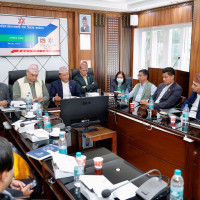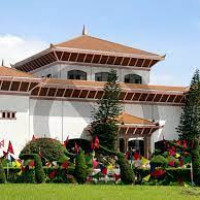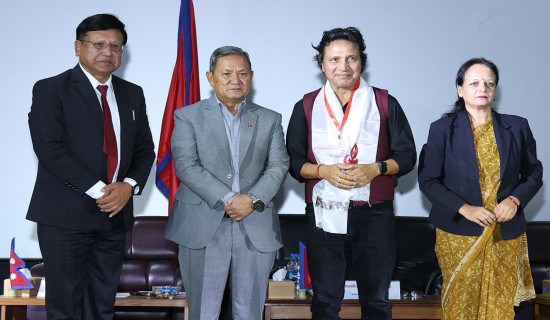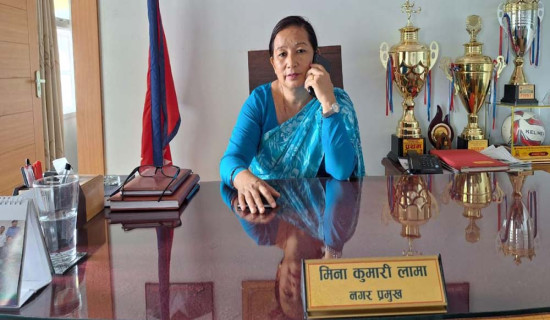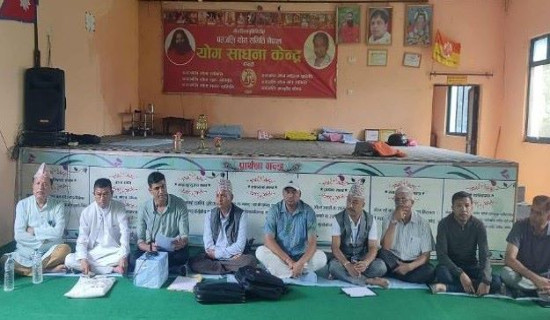- Monday, 1 September 2025
Preventing Conflict Among Health Professionals
Since ancient times, conflict has been natural and happens whenever there is human interaction. In a dynamic environment where individuals with diverse skills, personalities, and backgrounds work under constant pressure, such as in healthcare settings, viz., hospitals, clinics, and other health facilities. In such facilities, doctors, pharmacists, nurses, laboratory personnel, administrators, and other medical professionals often interact in high-stakes situations where decisions can mean the difference between life and death.
The conflict among healthcare professionals is common everywhere in the world. While collaboration is essential, conflict can harm not only workplace morale but also patient outcomes. In Nepal, the situation has not arisen in the same proportion, but it seems, in my opinion, it’s starting, and as a student of social pharmacy, practicing clinical toxicologist, and suicidologist, I can foresee it will only escalate.
Human well-being
We all know, healthcare professions are uniquely complex. Although mistakenly perceived otherwise, often in resource-limited settings, the central goal of healthcare industries is not profit but human well-being. Therefore, instead of unity among them, paradoxically, it can also be a source of tension.
All health professionals have different tasks to perform and often have overlapping responsibilities. For example, a physician may prescribe a drug, not a treatment plan in Nepal, and of course that clinical pharmacists may question based on their own expertise. As I foresee, it may arise soon as the clinical pharmacy stream is rapidly developing with a PharmD and MPharm in Pharmaceutical Care programmes.
Physicians trained in Western countries have seen the role of clinical pharmacists and nurses in patient management and are adopting such models in both government and private hospitals. Oftentimes, they forget it and apply the same old-fashioned hierarchical system once they return to their country. Hence, we need a national policy and guidelines for it. Without it and respect for each discipline’s role, this can easily escalate into disputes.
There exists a deeply hierarchical system in healthcare, especially in South Asia and many developing economies. In Nepal and even in developed countries, physicians often hold the highest authority, while pharmacists, nurses, and other medical staff may feel undervalued despite carrying a large share of patient care responsibilities. Hence, this imbalance breeds resentment and, in turn, may result in conflict.
I recently saw in one of the reputed teaching hospitals that due to long working hours, understaffing, limited resources, and insufficient space for even sitting have created a stressful environment. As we all healthcare professionals know fatigue lowers patience and tolerance that makes professionals more likely to clash with colleagues over small issues that might otherwise be resolved amicably.
Each health professional has been trained differently, views the patient through a different lens, and, of course, every human being is differently abled. Doctors focus on diagnosis and treatment, pharmacists on adverse drug reactions, medication errors, and safe medication use, nurses on holistic care, and administrators on policy and cost. These differences combined are strengths, but in practice, they can become points of contention. In low- and middle-income countries, lack of medicines, hospital equipment, or even hospital beds can trigger conflict. When there are limited resources, health professionals may compete or disagree over how to prioritise, leading to interpersonal disputes.
Personal discomfort is the main reason for conflict. It has serious consequences that extend far beyond the individuals involved. Studies show medical error results from poor communication and conflict among healthcare providers. When a nurse feels frightened and avoids clarifying to patients, or if a clinical pharmacist hesitates to challenge a wrong dose, time or duration, patients may suffer direct harm. Instead of focusing on our combined strengths, we are fighting for ego to be labelled as “first”. It is the right time to sit together to develop related guidelines and demarcate the roles that all of us have. The only goal is to improve the healthcare system.
The job satisfaction deteriorates owing to constant disputes. Talented health professionals may leave the organization, country, or even the profession entirely, worsening the already overstretched healthcare system. Burnout and emotional exhaustion are already very high among healthcare workers. Unresolved conflict causes stress, leading to depression, anxiety, or substance/drug abuse. In extreme cases, it results in self-harm or suicide among health workers, which is higher among them in developed countries; however, no studies have been conducted in Nepal.
Trust
When disagreements and hostility among health professionals reach the patient care level, they may lose confidence in the healthcare system as a whole. Trust, once wrecked, is difficult to reestablish. Let us imagine a scenario in a busy emergency department: a junior doctor or resident prescribes a high dose of medication (medication error). A nurse (although in Nepal their training needs to be improved first), recognising the risk, hesitates to question the order due to a hierarchical culture, and the pharmacist, noticing the same error later, argues with the doctor, who perceives it as a challenge.
In another case, hospital administrators may prioritise reduction in hospital cost, restrict space requirement for different departments, undermine the role of different medical professionals, or increase nursing hours. This often results in dissatisfaction against administrators, which hurts the collaborative environment. What happens finally is that both health professionals and patients are caught in a vicious cycle of dissatisfaction.
A simple issue of medication error results in professional rivalry or a professional ego being hurt. A simple issue of medication error that could have been resolved amicably, but resulted in harming patients. This deteriorates team capability. Let us work together from now onward to work out potential issues of professional conflict that may arise among health workers. I am ready to contribute as a certified pharmacist, clinical toxicologist, and suicidologist. Are you?
(Dr. Lohani is the executive director at the Health Concern. lohanis@gmail.com)




-square-thumb.jpg)
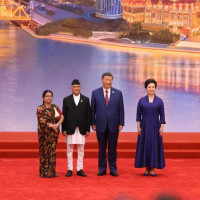
-original-thumb.jpg)
